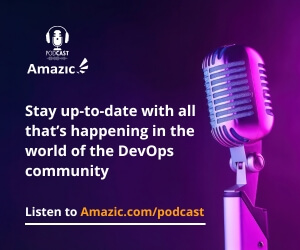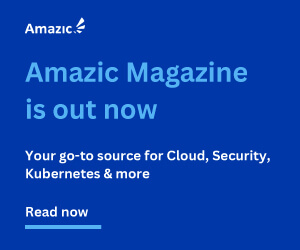The container orchestration landscape is both vast and rapidly evolving. For years, the conversation around managed Kubernetes services has been dominated by the big three cloud providers – the formidable AWS, the ever-adaptable Azure, and the genius of GCP. However, the competitive landscape is far more dynamic, with several other providers offering robust and innovative solutions.
This article delves into the uncharted territories beyond the big three, spotlighting six noteworthy managed Kubernetes services that have been making waves in the tech community.
1. DOKS by DigitalOcean
DigitalOcean Kubernetes (DOKS), provided by DigitalOcean, is a managed Kubernetes service known for its simplicity and developer-friendly approach. It provides a straightforward setup and interface that enables users to deploy and scale applications rapidly without dealing with the complexities of manual Kubernetes configuration. DOKS allows users to scale their Kubernetes clusters by adding or removing nodes based on application demand. It comes with integrated monitoring and logging solutions that let users gain insight into the performance and health of their Kubernetes clusters.
2. Alibaba Cloud Computing service for Kubernetes (ACK)
ACK is a fully managed Kubernetes service that allows users to focus on deploying and managing applications without worrying about the underlying infrastructure. It is built to be user-friendly and provides a web-based console, command-line interface (CLI), and API for cluster management. ACK supports multi-zone deployment for high availability, meaning users can deploy clusters across different availability zones within a region to enhance resilience.
It is designed to scale up or down with application needs. ACK includes security features such as virtual private cloud (VPC) isolation, network policies, etc, and can seamlessly integrate with Alibaba Cloud’s security services to help secure containerized workloads. It supports multi-cloud and hybrid-cloud deployments, enabling users to manage Kubernetes clusters across different environments.
3. Platform9 Managed Kubernetes
Platform9 Managed Kubernetes (PMK) is a Kubernetes-as-a-Service (KaaS) offering that provides a centralized management interface that allows users to manage multiple Kubernetes clusters from a single console. It makes Kubernetes deployment easy with a guided setup process, thus reducing time spent on manual configurations. PMK automates tasks like patching, scaling, and upgrading to help simplify the ongoing maintenance of Kubernetes clusters and helps ensure the clusters stay updated with the latest Kubernetes releases. It provides flexibility by supporting Kubernetes clusters across various cloud providers and on-prem environments, enabling multi-cloud and hybrid-cloud strategies. PMK has security features such as role-based access control (RBAC), identity management, and network policies to help secure Kubernetes clusters.
4. VMware Tanzu Kubernetes Grid
VMware Tanzu Kubernetes Grid (TKG) provides building solutions and runs and manages applications on Kubernetes. It provides a consistent, conformant Kubernetes runtime that can be deployed across various infrastructure environments, including on-prem data centers, public clouds, and edge locations. TKG is designed to cater to developers and operators, where developers can use familiar tools to deploy applications, and operators can manage and monitor clusters more efficiently.
It leverages the Cluster API, an open-source Kubernetes project for cluster lifecycle management. This allows for the use of declarative YAML manifests to define and manage Kubernetes clusters. TKG often integrates with Harbor, a Cloud Native Computing Foundation (CNCF) project for container image registry and repository management, to enhance container image security. It has various security features and can integrate with VMware’s security solutions to help enterprises secure their Kubernetes environments.
5. IBM Cloud Kubernetes Service (IKS)
IBM Cloud Kubernetes Service (IKS) is a fully managed Kubernetes service that abstracts the complexities of Kubernetes cluster management, allowing users to focus on deploying and managing their containerized applications. It supports dynamic scaling of clusters that enables resource adjustment based on application demand. IKS includes enterprise-grade features such as audit logging, compliance, and support for regulatory requirements.
It provides developer-friendly tools, including a web-based dash and CLI, making it easier for developers to interact with and manage their Kubernetes clusters. IKS provides seamless integration with other IBM Cloud services, enabling users to leverage a broad range of cloud resources and services.
6. Red Hat OpenShift
Also, part of IBM, Red Hat OpenShift is a platform-as-a-service (PaaS) offering known for its focus on developer productivity, security, and operation efficiency. It is built on top of Kubernetes, and includes a certified Kubernetes distribution that ensures compatibility with Kubernetes API and ecosystem. OpenShift includes an integrated container registry that allows users to store and manage container images. Since this registry is tightly integrated with the platform, deploying applications using stored images becomes easy. OpenShift comes with Source-to-image capabilities that enable developers to build and deploy applications directly from the source code, thus simplifying the process of containerizing applications without requiring Dockerfiles. It can integrate with logging and monitoring tools, including Grafana for visualization and Prometheus for monitoring. OpenShift includes a developer catalog that provides pre-built templates and services, which developers can leverage to discover and use best-practice application architectures and services. OpenShift Dedicated seamlessly integrates with CI/CD tools, allowing enterprises to set up automated workflows, and ensuring a streamlined software delivery process. It also includes security features such as container image scanning, integrated identity and access management, network policies, etc.
Conclusion
From user-friendly interfaces to seamless integration of enterprise-grade features and cost-effective solutions, each managed Kubernetes services mentioned above contributes to the democratization of container orchestration. This ensures that businesses of all sizes can leverage the power of Kubernetes without being confined to the offerings of the major players.



